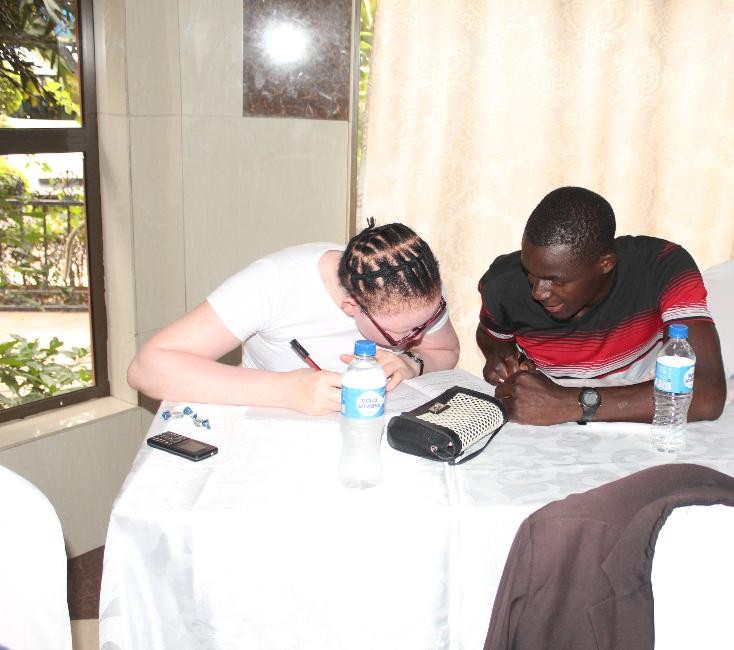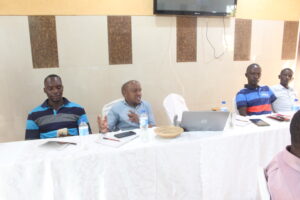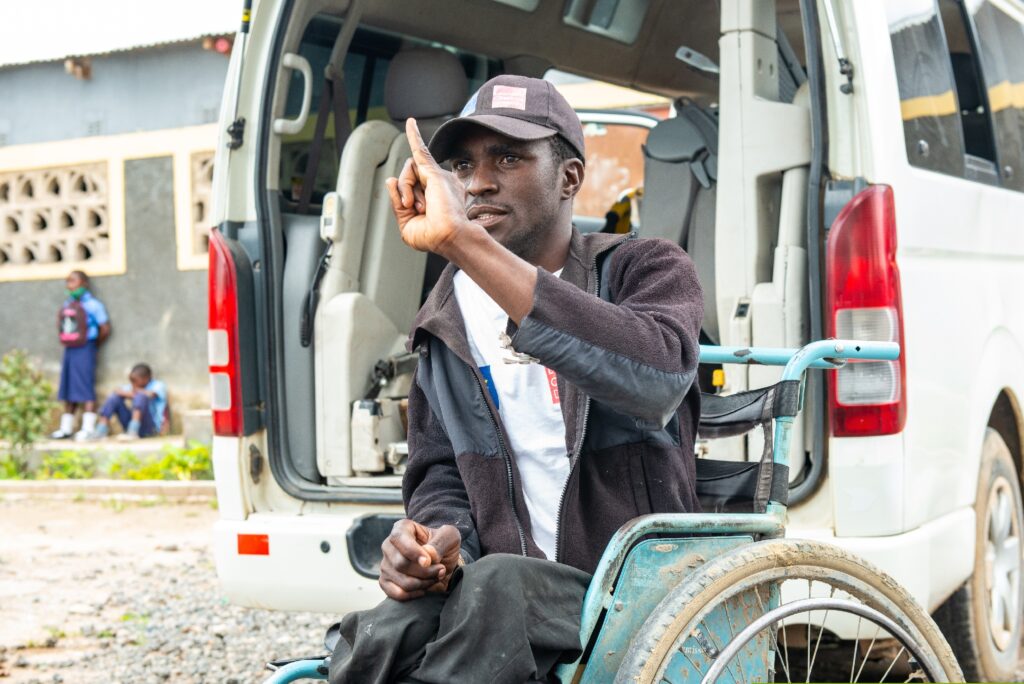
SOUTHERN OPDs COMMIT TO HOLD GOVERNMENT ACCOUNTABLE
EIGHTEEN (18) Organisations of Persons with Disabilities (OPDs) from Southern Province in Zambia have  undergone training in advocacy and social accountability and made a commitment to hold government accountable for its many commitments and promises to ensure persons with disabilities live better lives.
undergone training in advocacy and social accountability and made a commitment to hold government accountable for its many commitments and promises to ensure persons with disabilities live better lives.
The advocacy capacity building training delivered by Disability Rights Watch on 2nd and 3rd April 2025 in Choma with support from ActionAid Zambia through its partnership with the Swedish International Development Agency (SIDA) enhanced the advocacy skills of the organisations and provided them with the tools and knowledge to effectively campaign for their rights.
By building on social accountability principles and strengthening civic engagement, the training aimed to ensure that participants were well-equipped to hold government entities accountable and advocate for policies that benefit persons with disabilities.
Disability Rights Watch (DRW) is implementing the “Advancing Disability Inclusion and Accountability in Zambia’s Civil and Political Life” (ADIAZ) project. This vital initiative is being rolled out across three districts—Choma, Lusaka, and Petauke—with a focus on empowering persons with disabilities (PWDs) to advocate for their rights and enhance social accountability in their communities.
rolled out across three districts—Choma, Lusaka, and Petauke—with a focus on empowering persons with disabilities (PWDs) to advocate for their rights and enhance social accountability in their communities.
The DRW project is part of the K150 million project called “Strengthening Civil Society Effectiveness in Promoting Good Governance and Increasing Citizens’ Awareness and Demand for Human Rights in Zambia Project-Phase II.” which will runs for four years.
The workshop provided participants with an understanding of the legislative and political landscape, and on how to navigate policy-making processes, and how to effectively communicate and present their needs to policymakers and the public.
“This training is has been marvelous, we knew very little about how policies and laws are developed and implemented. We used to take a lot of our concerns to wrong offices and never knew that advocacy required planning and clarity on the messages and advocacy targets and audiences” Mr Mweemba an OPD leader from Chief Mapanza’s area testified.
The training sought to equip both male and female PWDs with essential knowledge and skills, enabling them to actively participate in advocacy efforts. This empowerment was aimed at ensuring that their voices are heard in decisions impacting their lives, particularly in relation to civil and political rights.
Another objective of the workshop was to provide practical kills in social accountability and civic engagement. The workshop came up with practical tools to engage meaningfully in civic activities and monitor government performance. The workshop interrogated the commitments that government has delivered to the Glabal Disability Summit which happened at the same time as the workshop in Berlin.
The commitments were added to the social accountability tools such as the score cards against which government performance will be assessed next year. Through interactive sessions, participants were trained on how to track policy implementation, assess government accountability, and advocate for changes where necessary.
By the end of the training, participants expressed deep appreciation for the content and delivery of the sessions. Many acknowledged the significant improvements in their advocacy skills and emphasized their commitment to using the knowledge gained to hold the government accountable for its obligations to persons with disabilities.
Participants left the training with a solid understanding of how to develop and implement effective advocacy campaigns, particularly in the context of disability rights.
Both men and women with disabilities gained greater confidence in their ability to advocate for their rights, and there was a notable increase in participants’ sense of agency regarding civic engagement.
Participants developed a clear understanding of social accountability and learned practical ways to monitor and evaluate government policies and their impact on the disability community.
The training facilitated valuable networking opportunities for OPDs, allowing them to collaborate on future advocacy efforts and share best practices.
This capacity-building training marks a significant milestone in advancing disability inclusion and accountability in Zambia, with participants empowered to take action and drive systemic change in their communities. As the ADIAZ project continues to roll out in the other districts, DRW remains dedicated to supporting persons with disabilities in achieving their full rights and participation in society.
